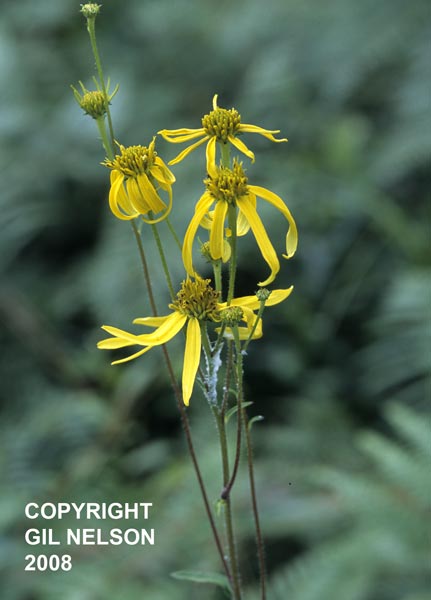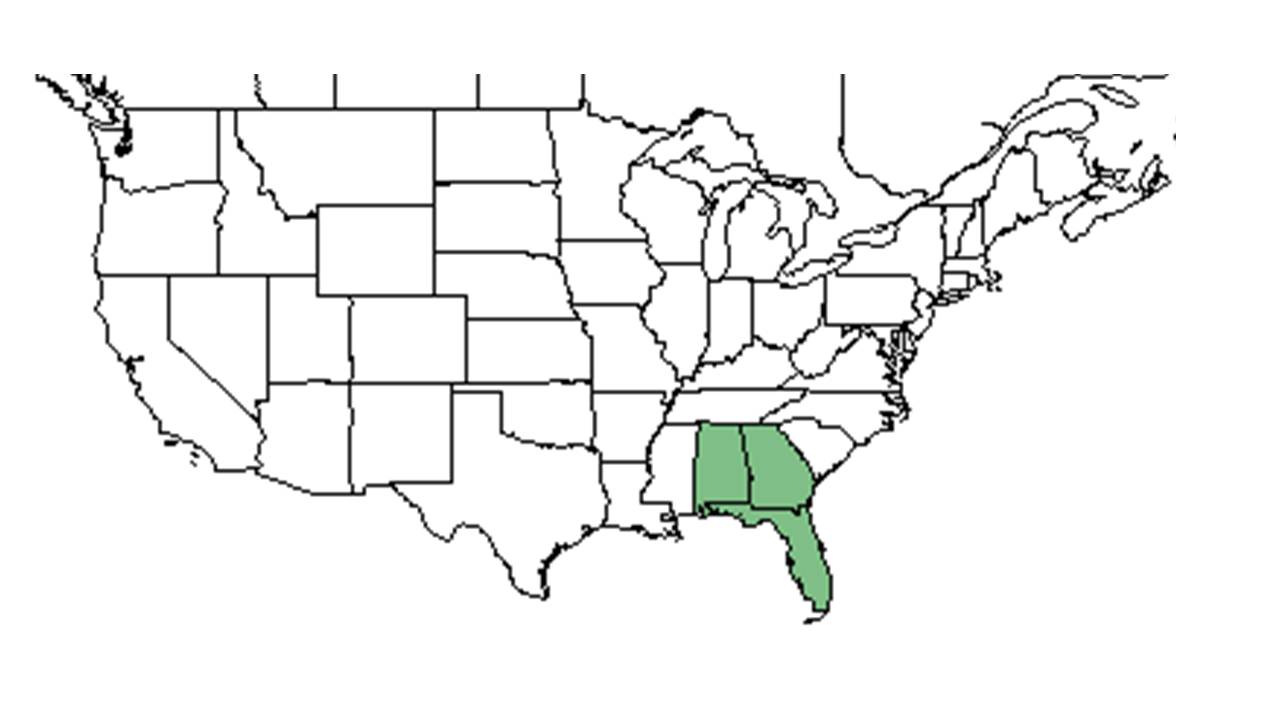Difference between revisions of "Verbesina aristata"
(→Seed dispersal) |
(→References and notes) |
||
| Line 49: | Line 49: | ||
==References and notes== | ==References and notes== | ||
| − | |||
| − | |||
[[KMR]] | [[KMR]] | ||
Revision as of 17:53, 14 April 2016
| Verbesina aristata | |
|---|---|

| |
| Photo taken by Gil Nelson | |
| Scientific classification | |
| Kingdom: | Plantae |
| Division: | Magnoliophyta – Flowering plants |
| Class: | Magnoliopsida – Dicotyledons |
| Order: | Asterales |
| Family: | Asteraceae ⁄ Compositae |
| Genus: | Verbesina |
| Species: | V. aristata |
| Binomial name | |
| Verbesina aristata (Elliott) A. Heller | |

| |
| Natural range of Verbesina aristata from USDA NRCS Plants Database. | |
Common name: coastal plain crownbeard
Contents
Taxonomic notes
Description
A description of Verbesina aristata is provided in The Flora of North America.
Distribution
Ecology
Habitat
In the Coastal Plain in Florida and Georgia, V. aristata can be found in open pine-hardwoods, longleaf pine-scrub oaks, pine flatwoods, annually burned pine woodlands, pine-hardwood second growth, pine-scrub oak sandhills, and longleaf pine forests (FSU Herbarium). It can also be found between railroads and highways in disturbed scrubs. Soil types include loamy sand, red sandy-clay, and sandy loam (FSU Herbarium). Associated species include Pinus palustris, Quercus ilicifolia, Quercus species, and Carya species (FSU Herbarium).
Phenology
Flowers and fruits May through September (FSU Herbarium). Kevin Robertson has observed this species flower within three months of burning. KMR
Seed dispersal
According to Kay Kirkman, a plant ecologist, this species disperses by wind. [1]
Seed bank and germination
Fire ecology
It flowers within three months of burning in the spring or early summer (Robertson observation).
Pollination
Use by animals
Diseases and parasites
Conservation and Management
Cultivation and restoration
Photo Gallery
References and notes
- ↑ Kay Kirkman, unpublished data, 2015.